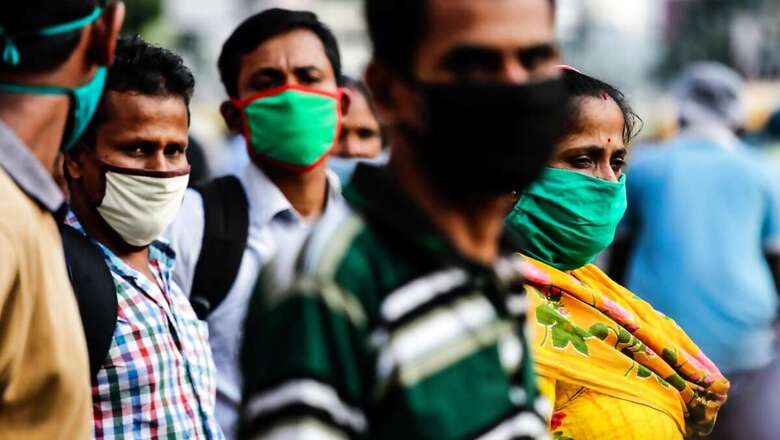
views
Temperature and humidity do not play a significant role in the spread of the novel coronavirus, that causes COVID-19, according to a study led by an Indian-origin researcher in the US. The study, published in the International Journal of Environmental Research and Public Health, suggests that the transmission of Covid-19 from one person to the next depends almost entirely on human behaviour, irrespective of hot or cold weather.
The researchers noted that weather influences the environment in which the coronavirus must survive before infecting a new host. However, it also influences human behaviour, which moves the virus from one host to another, they said.
"The effect of weather is low and other features such as mobility have more impact than weather. In terms of relative importance, weather is one of the last parameters," said Dev Niyogi, a professor at the University of Texas (UT) at Austin, US, who led the research. The study defined weather as "equivalent air temperature," which combines temperature and humidity into a single value.
The scientists then analysed how this value tracked with coronavirus spread in different areas from March to July 2020, with their scale ranging from US. states and counties, to countries, regions and the world at large. At the country and state scale, the researchers also investigated the relationship between coronavirus infection and human behaviour, using cellphone data to study travel habits.
The study examined human behaviour in a general sense and did not attempt to connect it to how the weather may have influenced it. At each scale, the researchers adjusted their analyses so that population differences did not skew results. Across scales, the scientists found that the weather had nearly no influence.
The researchers compared the weather with other factors using a statistical metric that breaks down the relative contribution of each factor towards a particular outcome. They found that the weather's relative importance at the county scale was less than 3 per cent, with no indication that a specific type of weather promoted spread over another.
In contrast, the data showed the clear influence of human behaviour — and the outsized influence of individual behaviours, according to the researchers. Taking trips and spending time away from home were the top two contributing factors to Covid-19 growth, with a relative importance of about 34 per cent and 26 per cent respectively, they said.
The researchers noted that the next two important factors were population and urban density, with a relative importance of about 23 per cent and 13 per cent respectively. "We shouldn't think of the problem as something driven by weather and climate. We should take personal precautions, be aware of the factors in urban exposure," said study co-author Sajad Jamshidi, a research assistant at Purdue University in the US.
Maryam Baniasad, a doctoral candidate at Ohio State University, US said that assumptions about how coronavirus would respond with weather are largely informed by studies conducted in laboratory settings on related viruses. Baniasad said that this study illustrates the importance of studies that analyse how the coronavirus spreads through human communities.
"When you study something in lab, it's a supervised environment. It's hard to scale up to society. This was our first motivation to do a more broad study," she added.
Constituency-Wise Election Results LIVE: West Bengal | Tamil Nadu | Kerala | Assam | Puducherry
LIVE Blogs: West Bengal | Tamil Nadu | Kerala | Assam

















Comments
0 comment